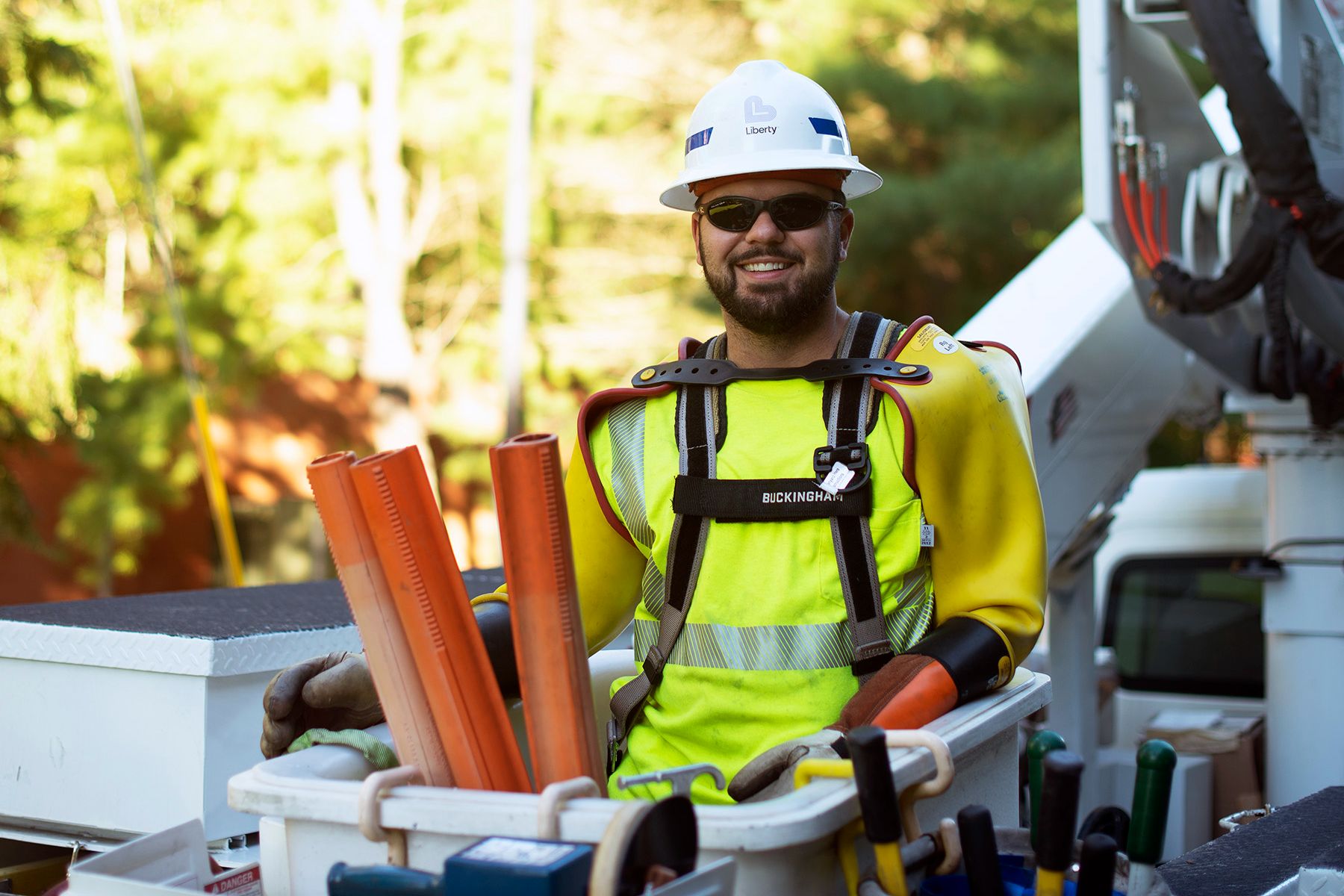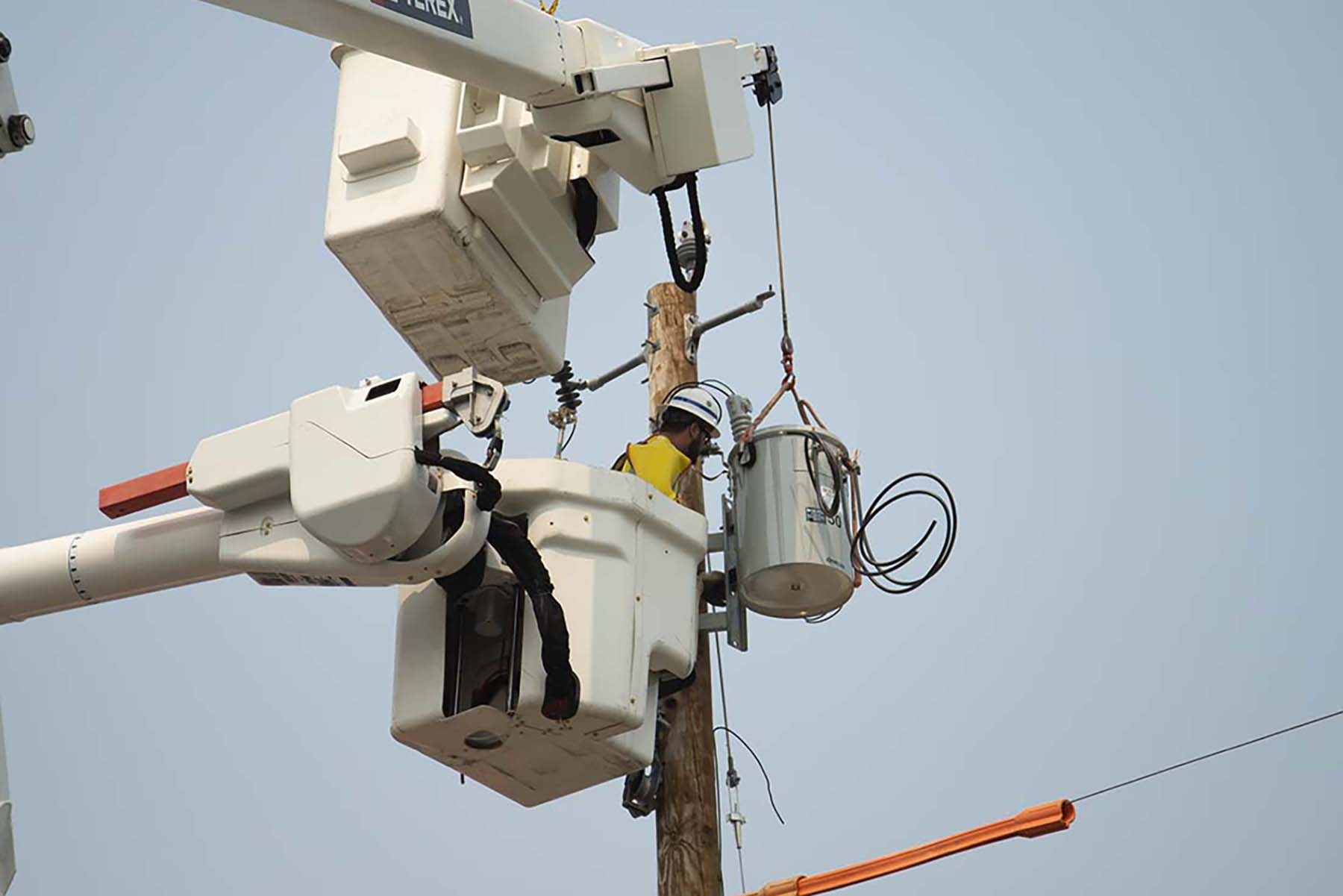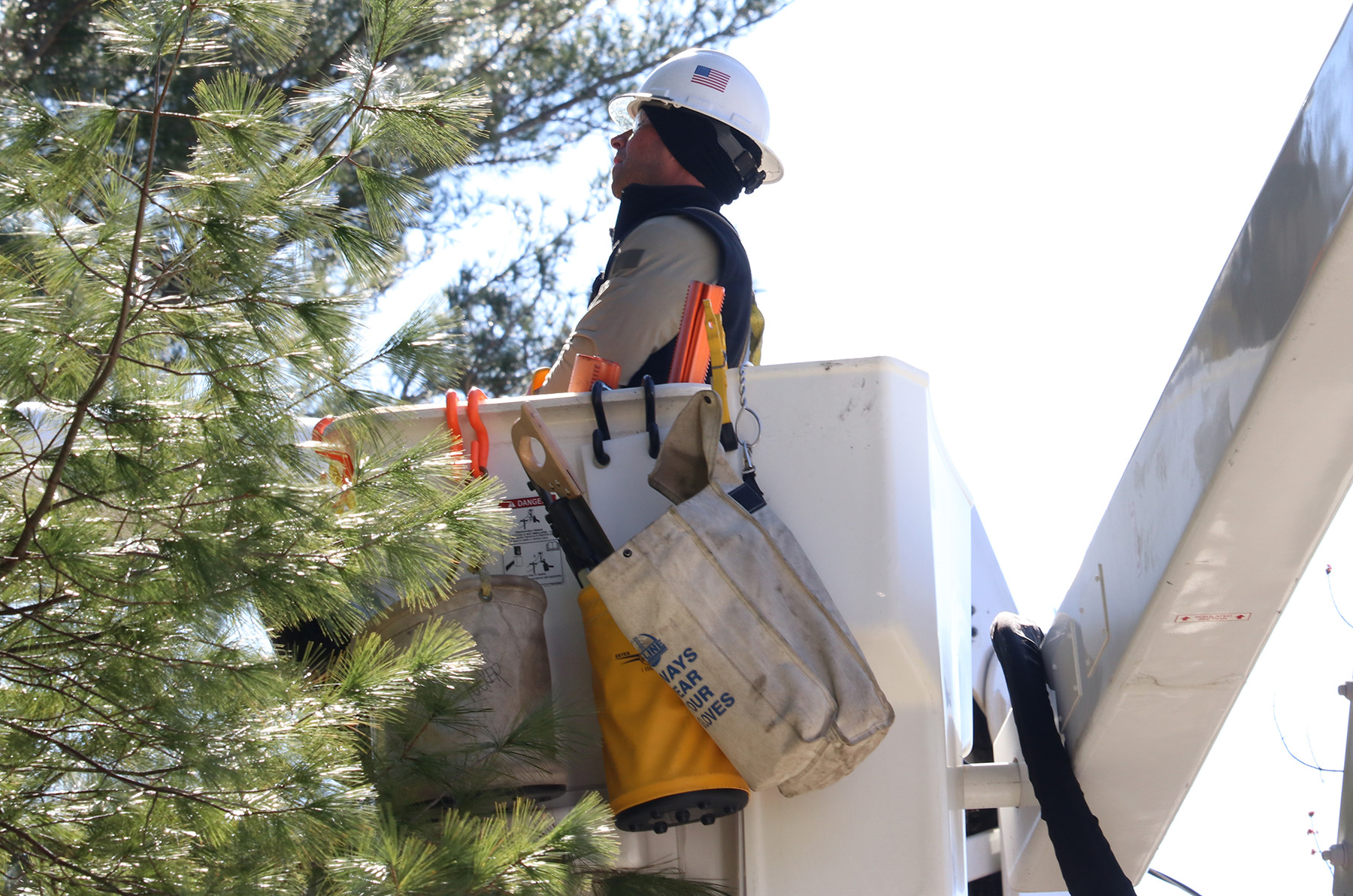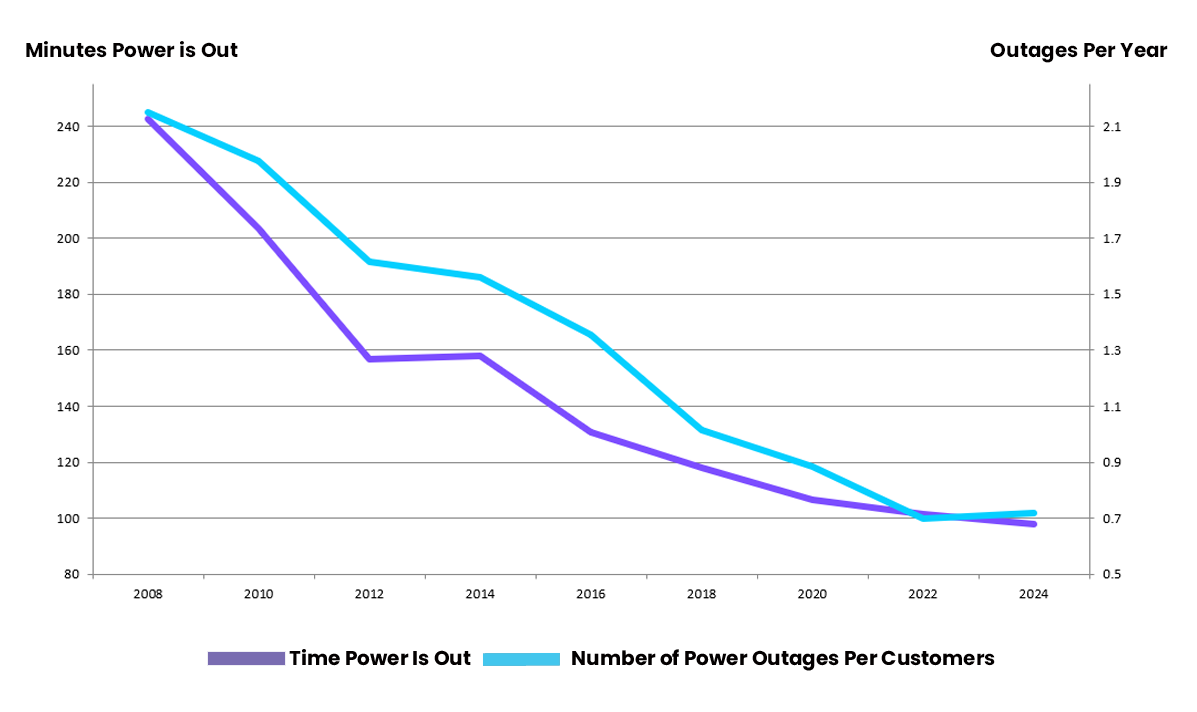Electric Reliability - Commercial - New Hampshire Electric - Liberty



We work hard to provide our customers with unparalleled safe and reliable service. Despite our best efforts to prevent outages, there are factors beyond our control, such as adverse weather, which can occasionally knock out power.
To illustrate the company’s efforts in improving reliability for our customers, the chart below shows Liberty’s two-year rolling average for number of outages and average duration of each outage between 2004 and 2024.
In 2008 (four years before Liberty purchased the utility), the average electric customer was interrupted 2.15 times and was out of power for 243 minutes. Since then, the company’s reliability performance has improved considerably. As of December 2024, the average Liberty customer was interrupted less than one time during the year and the average duration was 98 minutes.
This represents an improvement of approximately 60% for duration and 67% frequency of outages.

Our Efforts Are Award Winning!
Click below to learn about two prestigious awards Liberty received for recovery efforts associated with Winter Storm Tormund and for our for contributions in the redevelopment of Tuscan Village.
How did we achieve these improvements?
There are two components that effect the results of the chart above.
The first is adverse weather and other one-off incidents (like car accidents) that may knock out power. On years where we have more (or less) weather events, the average number of events and time the power is out may be increased (or decreased) slighly. Also worth noting is large storm events are not included in the calculation of these numbers. This is an industry best practice and is mainly done to not cause significant data anomalies.
But mother nature is not the only thing responsible for these results!
The second component that effects the number of outages and the duration of outages includes actions taken by Liberty.
We made significant improvements to our infrastructure, effectively managed vegetation around our powerlines, and responded quickly to outages when they occurred. These improvements are supported by our charges for distribution service (also referred to as rates) which are reviewed and reset from time to time by the New Hampshire Public Utilities Commission (NHPUC) through a formal process known as a rate case. During a rate case, the NHPUC will review Liberty’s investments and prospectively set distribution service charges at levels which fund Liberty’s improvement projects, allow it to keep up with cost increases, etc.
How do we maintain the level of service our customers expect and demand?
Everything we do, from our day-to-day operations to year-long projects to upgrade infrastructure, supports our electric system's reliability. A growing population, continuous vegetation growth, and aging equipment are just some of the reasons is it imperative our team constantly monitors electric demand and system capability to ensure we are providing unmatched reliability to our customers. Without these continuous improvements, customers could be negatively impacted and see an increase in the number of outages they experience.
Below is a list of projects Liberty has undertaken to increase reliability and decrease the number of power outages our customers experience.
What We Do To Keep You Running
To ensure safety and electric service reliability, we regularly trim vegetation surrounding our electric distribution system. We adhere to industry “best practices” and trim vegetation every few years. And the thing with trees is, they keep growing! So after four to five years, it is time to prune them again.
We only hire qualified contractors to do this work. We typically schedule pruning by electric circuit and time since last prune. We will also address significant tree hazards outside of our tree-pruning schedule
For more information about vegetation management, please click the button below.
Increased Supply:
In recent years, we have taken significant steps to enhance our power supply across multiple service areas. This includes the installation of new power lines, a strategic move aimed at minimizing the number of customers affected by outages. We have also diligently retired outdated equipment, ensuring efficient operation.
Below is a list of initiatives Liberty has taken to modernize our electric distribution system since 2019:
- Retired the Charlestown substation and seamlessly transitioned affected customers to the Michael Ave substation, which was established in 2013
- Expanded the Salem substation, which involved the addition of a second transformer and the incorporation of two new distribution feeders to accommodate future growth and improve reliability during storms and contingencies
- Constructed a new substation in Salem to optimize operations and retire outdated infrastructure
- Constructed novel 115KV electric supply lines in the Salem area to ensure adequate electric supply is distributed to the new substation
Learn more about all of the important growth and reliability work we have been conducting in Salem here.
Bare Primary Wires:
We have begun to replace bare primary wires on cross-arm utility poles due to the susceptibility of trees/branches coming into contact with them and causing an outage. The bare wire is replaced with spacer cable (shown below), which is a covered wire resistant to tree-related outages. Since 2019, we have completed approximately 16 miles of bare wire replacement. Below are a few areas where these efforts have been completed.
- Bridge St, Salem
- Nashua Rd, Pelham
- Burns Rd, Pelham
- Mammoth Rd, Pelham
- Watkins Hill Rd, Walpole 2019

Cable Replacements:
- In 2016, we replaced approximately 600 feet of underground cable at a substation in Salem. In 2017, we replaced approximately 600 feet of underground cable at the Pelham substation.
- In July of 2018, we began replacing approximately 1,700 feet of underground cables on Main St in Hanover.
- In 2019, we replaced approximately 4,000 feet of underground cable on Central St in Salem.
- In 2020, we will replace approximately 400 feet of underground cable at a substation in northeast Salem.
Distribution Automation:
Customers want to see a more modern power system that can respond more quickly to problems and isolate them to smaller portions of the system. Distribution Automation will allow for the system to automatically respond to interruptions and restore unaffected portions of the system automatically.
Over the recent years, we have implemented a distribution automation scheme in Salem, which consistently monitors multiple feeders. In the event of a fault, it promptly restores and isolates the faults, ensuring a safe and reliable system.
Digsafe is a free service that helps prevent underground utilities from unintentionally being hit while digging. Throughout the year, we market this service to make sure our customers, third-party contractors, and the public are aware of this state law. We do this through social media, bill inserts, newsletters, and through the welcome packets that all new customers receive.
We increase reliability by helping others to understand if someone hits an underground utility line, not only can it harm them, it can also cause a neighborhood-wide power outage. In this instance, education is our greatest defense.
To support the rapid growth in Salem, Liberty recently completed a large project involving the construction of the new Rockingham Substation. This substation brought a 50-megawatt (or 100%) increase in system capacity, greater reliability, and a modernized grid to the residents and businesses in Salem, New Hampshire. Liberty’s largest ever investment in the electric system, the project was also an investment in the community as it supported new developments including Tuscan Village, a 4-million square foot, mixed-use destination.
In addition to constructing the new substation, Liberty – New Hampshire installed two 115 kV supply lines and five new circuits, and retired two 70-year-old substations.
Battery Storage Is Here!
In continuing efforts to decrease load on our infrastructure, lower energy costs for customers and provide a method of back-up power for participating customers, we have introduced a Battery Storage Pilot Program in NH. Our first installation has been completed!
